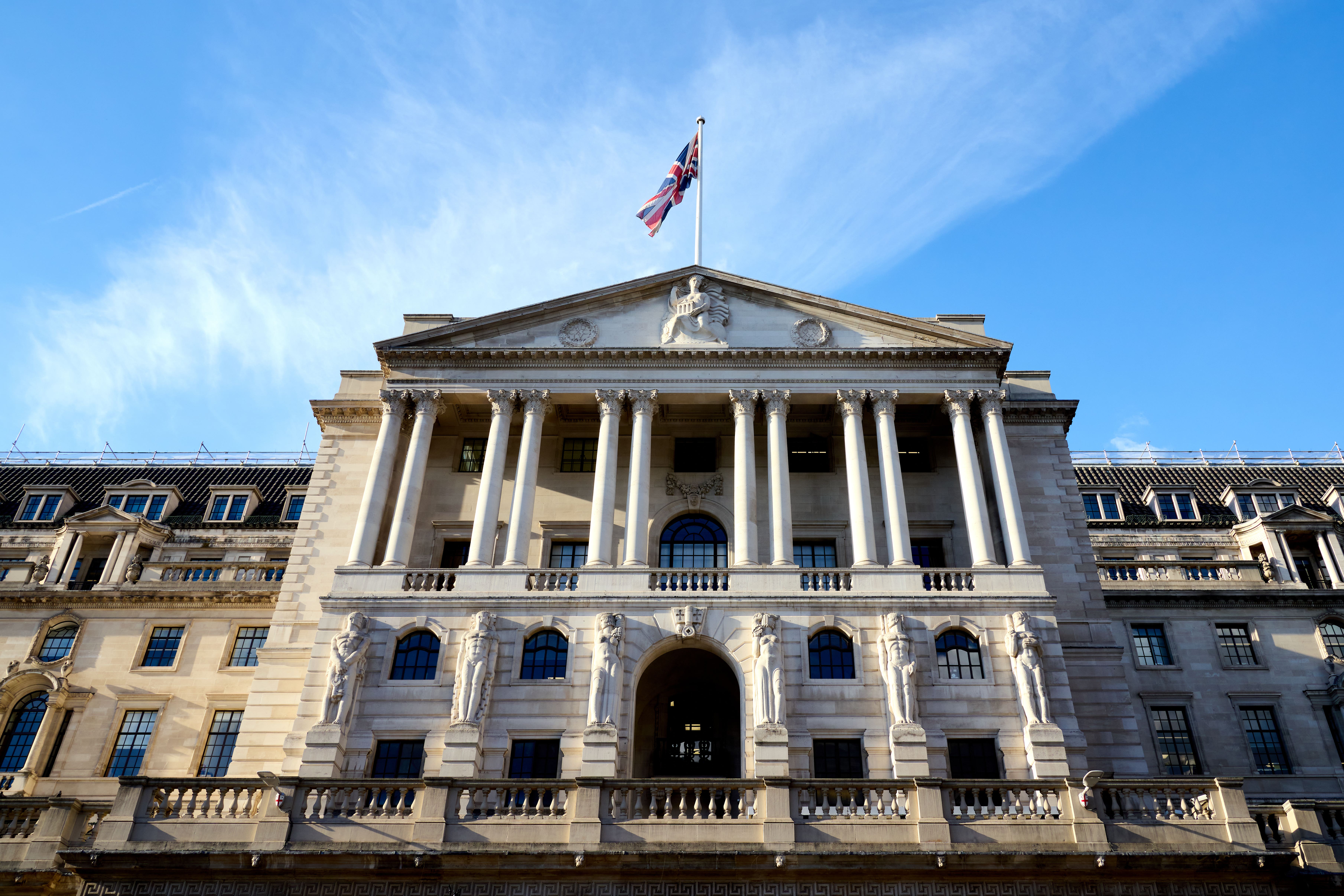Interest rates expected to rise after shock increase in inflation
Economists are pencilling in a rise to 4.25% from 4% following official data showing a surprise jump in inflation to 10.4% last month.

Your support helps us to tell the story
From reproductive rights to climate change to Big Tech, The Independent is on the ground when the story is developing. Whether it's investigating the financials of Elon Musk's pro-Trump PAC or producing our latest documentary, 'The A Word', which shines a light on the American women fighting for reproductive rights, we know how important it is to parse out the facts from the messaging.
At such a critical moment in US history, we need reporters on the ground. Your donation allows us to keep sending journalists to speak to both sides of the story.
The Independent is trusted by Americans across the entire political spectrum. And unlike many other quality news outlets, we choose not to lock Americans out of our reporting and analysis with paywalls. We believe quality journalism should be available to everyone, paid for by those who can afford it.
Your support makes all the difference.The Bank of England is expected to increase interest rates for the 11th time in a row on Thursday after an unexpected resurgence in UK inflation.
Economists are pencilling in a rise to 4.25% from 4%, with the case for an increase strengthened by official figures on Wednesday revealing a surprise jump in inflation to 10.4% last month.
The noon decision also comes after the US Federal Reserve raised its key overnight interest rate by a quarter of a percentage point, despite recent turbulence in financial markets amid fears of a banking crisis.
But the Bank of England faces a difficult balancing act, weighing up the need to rein in inflation with the worries over banking woes and the possibility they may start to clamp down on lending.
Whatever flexibility the Bank of England may have thought it would have on Thursday was wiped out by Wednesday morning's inflation data
Shares on Wall Street tumbled sharply overnight on the Fed’s decision and its comments suggesting it does not expect to cut rates anytime soon, highlighting the fragility of stock market confidence.
After three days of bounceback gains, the S&P 500 fell 1.7%, while the Dow Jones Industrial Average lost 1.6% and the Nasdaq composite dropped 1.6%.
UK economists had been on the fence about whether Britain’s central bank will opt for another rate rise at Thursday’s Monetary Policy Committee (MPC) meeting, following a period of instability in the global banking sector.
Some of the sharpest drops again came from the banking industry, where investors are worried about the possibility of more banks failing if customers pull out their money all at once.
But the unexpected jump in Consumer Prices Index inflation, from 10.1% in January to 10.4% in February, is seen as making it harder for the Bank to justify pausing its prolonged cycle of rate increases.
Another rate rise will pile yet more pressure on borrowers, already under strain from the cost-of-living crisis.
Craig Erlam, a senior market analyst for Oanda, said: “Whatever flexibility the Bank of England may have thought it would have on Thursday was wiped out by Wednesday morning’s inflation data.”
He added there is “nothing that would justify a pause” in raising interest rates, “even against the backdrop of financial stability concerns and the knock-on effects of aggressive rate hikes”.
The MPC will have to assess which is the lesser of two evils
It follows the collapse of the US’s Silicon Valley Bank and the historic rescue takeover of Credit Suisse, with both events sending shockwaves through the financial markets and sparking fears of a global banking crisis.
It also threw into question whether higher interest rates are putting too much pressure on smaller lenders, which could be buckling under the weight of losses on their investments.
ING Economics suggests the Bank of England will want to see more evidence that inflationary pressures are easing up more broadly before ending its cycle of rate rises.
Its experts are also predicting a 0.25 percentage point increase, but said it could be the final rise before rates fall back down.
Meanwhile, Investec Economics predicts the Bank will opt for a “wait-and-see approach” and keep rates at 4% while it assesses the situation.
Economist Ellie Henderson said: “The MPC will have to assess which is the lesser of two evils: the risk of inflation being higher for longer or the current threat to financial stability stemming from the rapidly evolving fears of a banking crisis.”